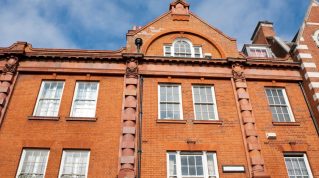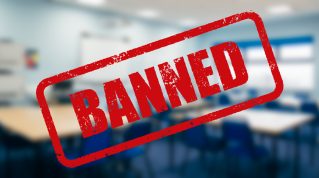Removing private schools’ charitable status will likely raise £600 million less than Labour hopes it will, a think tank has warned.
Many of Labour’s plans for education reform hinge on lifting the tax exemptions on private schools, meaning they would charge VAT on fees.
The party has repeatedly estimated that doing so would raise £1.6 billion in VAT.
But that figure has been contested today in a new research report by the EDSK think tank, run by former government adviser Tom Richmond, which found that “claims about how much new revenue could be unlocked by this policy seem very optimistic”.

The report traced the claim back to a 2011 Fabian Society report, and called the calculations “badly flawed”.
For example, EDSK said the original analysis included over 50,000 pupils actually educated in the state sector, as well as nursery-aged children in private schools, when VAT is not charged on childcare.
The calculation also added 20 per cent to the fees charged by expensive private schools, even though a proportion of their fees are for boarding, which again is exempt from VAT, the think tank said.
And the report did not account for the fact “some pupils could be forced to quit private school if VAT was suddenly added to their fees”, which EDSK said would “result in lower VAT revenues for the government as well as higher government spending on new state school places”.
Income closer to £1bn, predicts ex-adviser
Richmond took two estimates of pupil “drop-off” resulting from such a policy. Based on Labour’s own assumption of 5 per cent, the report estimated the income would drop to £991 million.
If 25 per cent dropped out, as a report commissioned by the Independent Schools Council estimated in 2018, income would fall to just £19 million.
“Claims of £1.6 billion a year being raised from adding VAT to private school fees look far too optimistic, particularly if any more than a small number of pupils end up leaving private schools and moving to the state sector instead,” said Richmond.
“What’s more, changing VAT rules with the sole aim of targeting private schools could lead to many unintended consequences that result in a government raising much less money than intended.”
Analysis based on ‘flawed assumptions’ says Labour
However a Labour source said it did not “recognise the numbers cited in this report, which rest on flawed assumptions and leaves more questions than it answers”.
“We do not accept that the numbers of students leaving the sector would be anywhere near those cited this report.”
They also pointed out that the report assumed money not spent on private schools would not be spent on other goods and services that are taxable. “That shows that this is simply not a serious piece of research.”
As the report makes clear, Labour’s policy is not new. A similar pledge was also made in the 2019 and 2017 general election manifestos, and it was also party policy as far back as 1983.
But it has been used recently as a dividing line by the Conservatives, who have accused Labour leader Sir Keir Starmer of attacking “aspiration”.
The ISC has also lobbied hard against the policy, and cited today’s report as further evidence “Labour’s policy will not raise the money it claims”.
Economist casts doubt on report’s findings
But Luke Sibieta, research fellow at the Institute for Fiscal Studies, said the “evidence on private school attendance suggests that demand is driven by high incomes and wealth, culture, values and a desire for different sort of education, with relatively weak effects of fees”.

He said Labour’s policy was “likely to have only a small impact on demand and private schools will likely absorb some of any increase”.
He said while adding VAT to private school fees would “probably raise more than assumed” in the EDSK report, “exactly how much is an open question though, with lots of uncertainty”.
Richmond’s report also said private schools forced to charge VAT on fees may become eligible to reclaim any VAT that the school incurred on recent large building projects.
This is due to the government’s capital goods scheme, which allows organisations to claim back some or all of the tax they paid on projects worth £250,000 or more.
The report also warned parents fearing a change of government could pay several years’ worth of fees upfront, therefore reducing the VAT take of a future Labour administration
But Francis Green, co-founder of Private Education Policy Forum and professor of work and education economics at UCL said there were “question marks” over this assumption, when paying upfront fees was “in fact only possible for the very richest”.














Your thoughts